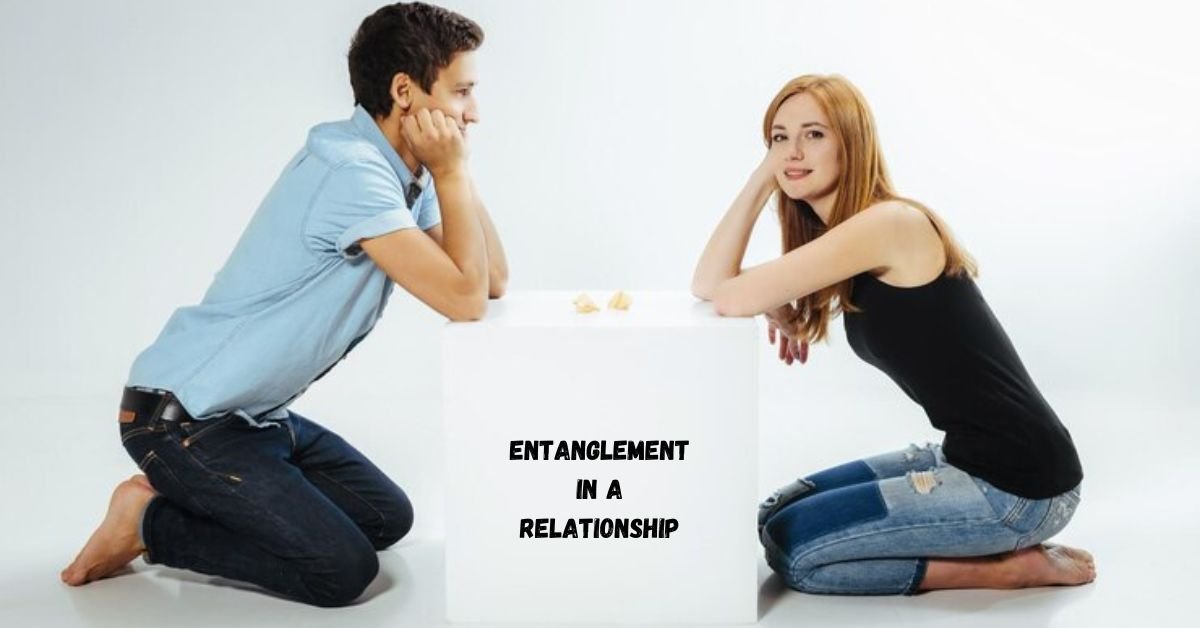Introduction
Entanglement in a relationship refers to an intense emotional and psychological connection between partners, often leading to blurred boundaries and unhealthy dependency. Unlike a healthy relationship built on trust and individuality, entanglement can cause emotional distress, loss of personal identity, and difficulties in making independent decisions.
In this article, we will explore the signs, causes, and impact of relationship entanglement. We will also provide actionable steps to establish healthy boundaries, fostering a balanced and fulfilling connection.
What is Entanglement in a Relationship?
Entanglement occurs when two individuals become so emotionally and mentally intertwined that their thoughts, feelings, and actions are heavily influenced by one another. While deep emotional connections are natural in relationships, entanglement often crosses the line into unhealthy attachment, making it difficult for partners to function independently.
Entanglement vs. Healthy Attachment
Many people confuse entanglement with emotional intimacy. However, the key difference lies in the balance between closeness and individuality.
| Aspect | Entanglement | Healthy Relationship |
|---|---|---|
| Emotional Dependency | Over-reliance on partner for happiness and decisions | Mutual support with personal independence |
| Boundaries | Blurred or non-existent | Clear and respected |
| Identity | Loss of self-identity | Strong sense of individuality |
| Conflict Handling | Avoidance or extreme emotional reactions | Open communication and problem-solving |
Signs of Entanglement in a Relationship
If you’re unsure whether your relationship is entangled, here are some key warning signs:
1. Loss of Personal Identity
If you find yourself making decisions solely based on your partner’s preferences rather than your own, it may indicate entanglement.
2. Constant Need for Validation
In entangled relationships, one or both partners rely on constant reassurance from the other to feel secure and valued.
3. Fear of Conflict
You may avoid disagreements at all costs, fearing that even minor conflicts could damage the relationship.
4. Emotional Overinvestment
Your partner’s emotions dictate your mood. If they’re happy, you’re happy. If they’re upset, you feel responsible for fixing everything.
5. Difficulty Spending Time Apart
If the idea of spending time alone or with other friends and family members feels unsettling, your relationship may be too intertwined.
Causes of Relationship Entanglement
Several factors contribute to emotional entanglement, including:
1. Unresolved Childhood Attachment Issues
People with insecure attachment styles, often due to childhood trauma or neglect, may develop an excessive need for closeness in their relationships.
2. Low Self-Esteem
Individuals who struggle with self-worth may become overly dependent on their partner for validation and identity.
3. Fear of Abandonment
A deep-rooted fear of being alone or abandoned can drive people to over-attach in relationships.
4. Codependency Patterns
When one partner takes on the role of “fixer” and the other becomes dependent on their care, a codependent dynamic forms, leading to entanglement.
The Impact of Relationship Entanglement
1. Emotional Exhaustion
Being overly invested in another person’s emotions can be mentally draining, leading to stress and anxiety.
2. Stagnation in Personal Growth
Entangled partners may neglect personal goals, interests, and self-improvement in favor of prioritizing the relationship.
3. Unhealthy Power Dynamics
One partner may hold more emotional control, leading to an imbalance in decision-making and emotional well-being.
4. Difficulty in Setting Boundaries
Without clear boundaries, partners may struggle to maintain friendships, hobbies, and personal space.
How to Overcome Entanglement and Build Healthy Relationships
1. Establish Clear Boundaries
- Communicate openly about your need for personal space.
- Set healthy limits on time spent together versus time spent apart.
2. Develop Individual Identity
- Pursue hobbies, interests, and personal growth separate from your relationship.
- Strengthen your friendships and social circles outside of your partner.
3. Practice Healthy Communication
- Express emotions and concerns honestly without fear of rejection.
- Address conflicts constructively rather than avoiding them.
4. Seek Professional Guidance
If entanglement is causing distress, relationship counseling or therapy can provide strategies for establishing a healthier dynamic.
Final Thoughts
Entanglement in a relationship can lead to emotional exhaustion, dependency, and a loss of self-identity. Recognizing the signs and taking proactive steps to establish healthy boundaries ensures a fulfilling, supportive relationship without losing personal independence.
By fostering mutual respect, clear communication, and individual growth, partners can cultivate a strong, balanced connection that thrives on both love and autonomy.

